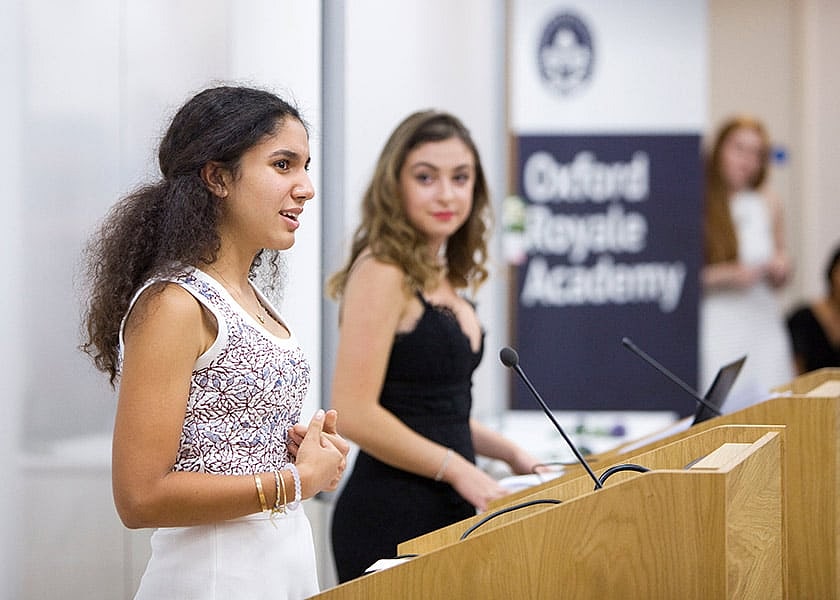7 Types of Purposeful Travel and Why You Should Consider Them
In the world of travel and tourism, purposeful travel is the exciting new trend.
But you might be wondering what it means. Doesn’t all travel have a purpose? Yes, but purposeful travel goes beyond the purpose of – say – sitting on a beach, reading a book and topping up your tan. Purposeful travel is travelling with a particular goal in mind, typically either self-improvement, from summer schools to meditation retreats, or improvement of the world around you, from putting up fences in a national park to getting newly-hatched turtles into the sea. Some purposeful travel is mostly hard work; other options balance work and play so you also get something of a holiday. In this article, we’ve looked at some of the key types of purposeful travel available for school and university students, who they’re intended for, what they achieve and why you might like to consider them.
1. Academic summer school study
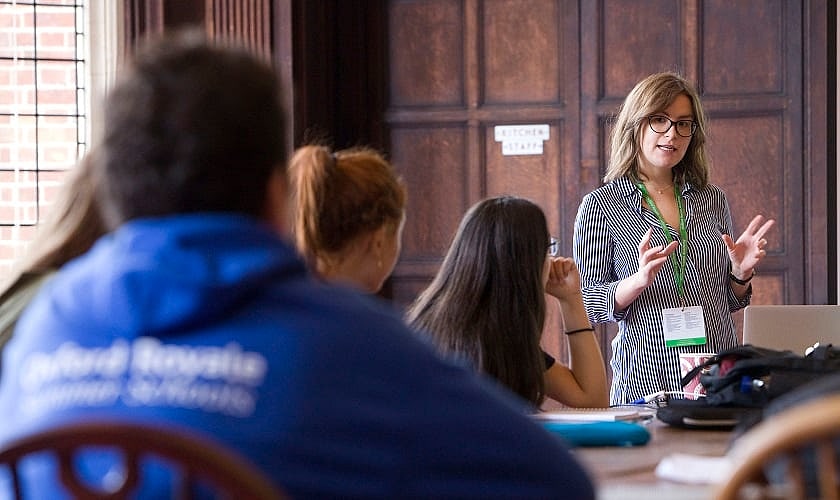
Imagine a classic Oxford summer school and you’re probably thinking of academic summer school study. This is where you go away to some exciting academic destination for a couple of weeks to study subjects that you might also have encountered at school or university, but from a fresh perspective. Some academic summer schools take a “crammer” approach, in order to fill you up fast with knowledge ahead of exams; others are focused much more on giving you time to enjoy yourself, and learn through discussion, debate, excursions and practical activities to bring the subject to life. When you choose your summer school, which approach they take should be top of your list of things to consider.
These two approaches to academic summer schools demonstrate two of the reasons that someone might choose this form of purposeful travel. Many students find that their day-to-day academic study is dominated by thoughts of exams and assessments. One reason to travel to a summer school is to prepare for these exams – whether they’re school exams or university entrance exams. Having fun while learning can be a secondary consideration, with the main aim being to get your marks up – and fast. The content will reflect what you’ve learned at school or university, as that’s what you’ll be tested on.
The other reason is to get a break from that cycle of hard study, revision and exams; to enjoy learning for learning’s own sake and reignite your enthusiasm for your favourite subjects. This is the approach taken by Oxford Royale Academy’s academic courses. The content is designed to be excitingly different to what you might encounter in the usual course of your studies. And there’s a lot more emphasis on having fun doing activities and going on excursions outside of class as well.
2. Vocational summer courses

But you can choose a summer school approach to purposeful travel without necessarily studying the same subjects that you’ll encounter in school or university. It’s also possible to travel to study a vocational course, whether that’s focused on a skill like coding or a career like Law, Medicine or Engineering.
The content and approach of a vocational summer course is a lot like the more relaxed kind of academic course, and you can expect some academic study to be included. But the focus will be different: this isn’t just learning for the sake of learning, it’s learning to develop a skill or achieve a particular career goal. For some of us, having that goal in mind – rather than something vaguer like gaining knowledge about a topic – can make purposeful travel in pursuit of vocational learning that much more motivating. And it can be satisfying knowing that by the end of the course, you’ll have learned how to code an app or build a robot, or written a great personal statement for the university course you’ve always wanted to study.
As with academic courses, you can choose a vocational course on the basis that it will lead you to the career of your dreams or just something that you think might be interesting to gain skills in for a week or two. Additional activities outside of the classroom complement your learning and turn your travel into a holiday as well as an opportunity for self-improvement.
3. Longer pre-university study
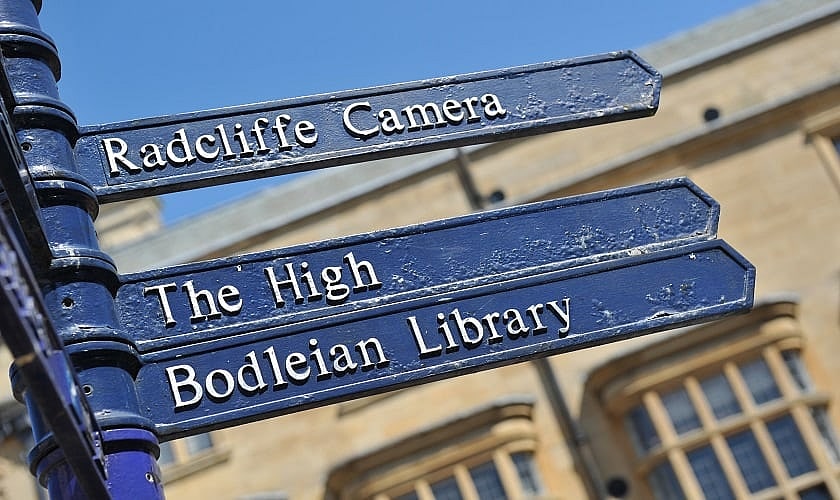
It might be that the week or two of a summer school course isn’t enough for what you want to achieve, whether that’s learning about a new subject, gaining a new skill, preparing for university or bringing your grades up a notch or two. Another approach to purposeful travel is to travel in order to study for a longer period, such as on Oxford Royale Academy’s Gap Year and Pre-University Foundation courses.
Why might you choose a course like this? Typically, they’re taken by students who want to get a head start before embarking on university study, whether at undergraduate or in some cases at postgraduate level. It might be that you’re moving between countries with very different education systems, so there are gaps in your knowledge that your professors might not expect (as well as areas that you might have studied while the rest of your class hasn’t). You might also want to make sure that the skills you’ll need as a student are sharp, such as essay-writing, research skills or public speaking. And you might also want to learn all of this while availing of the opportunity to practise your English, see a new part of the world and make new friends.
Oxford Royale Academy’s versions of these courses last for a term of 10 weeks, but with other providers you might study for even longer. What’s important is that at the end of your studies, you feel confident about your ability to keep up with your peers in your forthcoming time at university.
.
4. Artistic retreats
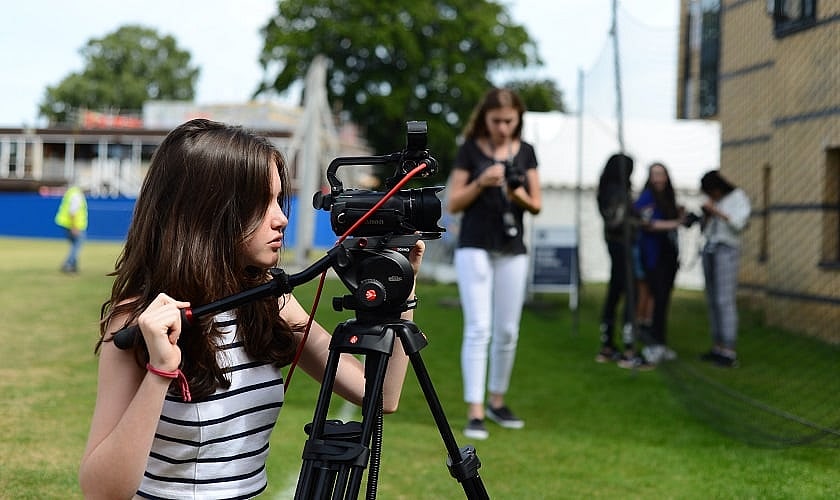
Outside of the world of academia lies the wide range of purposeful travel opportunities that can be grouped under the vague heading of ‘artistic retreats’. These can take all kinds of forms, but the overall aim is that you travel in order to have a relaxing holiday while also having the opportunity to learn and develop new creative skills.
The classic artistic retreat is a painting or sketching holiday: going somewhere beautiful with a group of people and an instructor to spend your days painting or sketching what you see around you. Some people do this out of a strong desire to improve their artistic technique, but for others going away and painting for a week or two is relaxing, and if they produce a decent artwork in the process, then that’s a bonus.
But a painting holiday isn’t the only form of artistic retreat that you might choose. There are retreats for just about any kind of creative activity, whether that’s visual art, poetry, scriptwriting, filmmaking, woodworking or just about anything else. There’ll typically be some excursions and evening activities, but the focus is on your chance to get away from it all and express your creativity.
If you like the sound of this, but it seems a bit slow-paced for you, you might want to consider Oxford Royale Academy courses such as Film Academy or Architecture and Design, both of which combine elements of the artistic retreat with a vocational focus so you can put your new skills to use. Similarly, courses such as Creative Arts allow you to combine a creative option with academic study.
5. English-language study
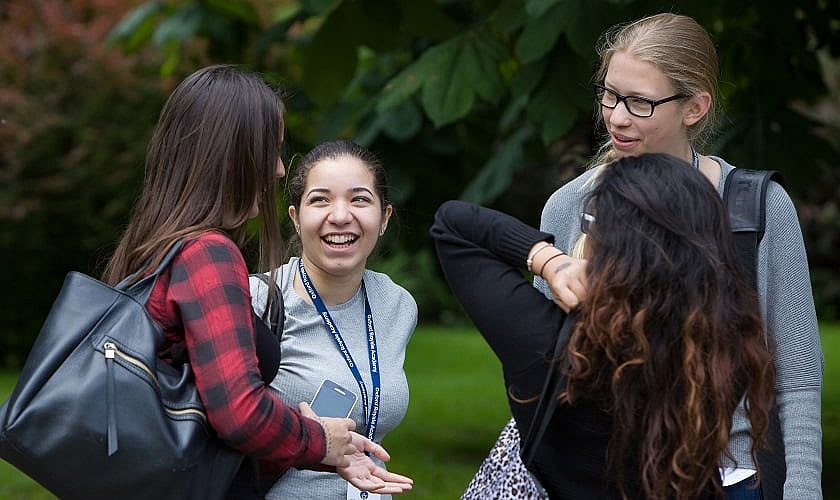
Every year thousands of people travel in order to study languages, with English as the most common language they choose to study. It’s easy to see why the opportunity to study a language is such a popular form of purposeful travel; indeed, many people who are travelling with a different purpose will also hope to improve their language skills at the same time, perhaps choosing their destination country on that basis.
Studying a language in your own country isn’t the same as studying it somewhere where that language is native and being spoken around you every day. It’s even better if you’re learning alongside people from different countries with different native languages themselves, so the process of making friends with your fellow students incentivises you to get better at your target language and represents an opportunity to practise it.
There’s almost every kind of programme for studying English as a foreign language that you can imagine, from intensive weekends of one-to-one study designed for executives with little time on their hands, to two-week courses that combine classroom study with activities and excursions, to courses over weeks or even months that might allow you to work a part-time job or carry out other study at the same time. The beauty of any of these options is that once you’ve travelled to an English-speaking country, almost everything you do will help you learn: whether that’s reading road signs, buying something from a shop, chatting to your fellow students, or seeing the sights.
6. Voluntourism

Voluntourism is a particular form of volunteering (more on general volunteering in a moment). It’s where you follow a planned-out package that includes some volunteering work, such as teaching schoolchildren, building necessary infrastructure like schoolrooms or wells, conservation or animal rescue work. Alongside your volunteering, there’ll be planned sightseeing trips and opportunities to socialise and have fun with your fellow volunteers. Typically, the fee for voluntourism will put profits back into the communities or activities you’re supporting.
Voluntourism has a bad reputation, and that because some voluntourism is decidedly unethical. For instance, the charity Lumos has criticised voluntourism trips to orphanages, as they encourage the development of orphanages rather than the use of foster homes (which have better outcomes) and can increase an already traumatised child’s sense of abandonment as they form a connection with a series of volunteers, only to be left behind when the trip comes to an end. Other voluntourism can seem more ethical, but takes jobs away from local communities and saps their ability to support themselves.
That’s not to say that voluntourism should be avoided altogether. It can be a great way to enjoy yourself in often beautiful surroundings while making the world a better place. You can separate the good from the bad by asking questions like whether a local worker would be paid to carry out the activity in the absence of a volunteer working for free, breaking down where the money goes from your fee, not doing anything you wouldn’t be qualified to do at home, and asking what the impact has been of the work of previous volunteers.
7. Volunteering

The less-organised cousin of voluntourism, volunteering is any activity that you do for an organisation without pay; typically, for a charity, though some volunteers choose to go and work in non-charitable organisations like schools or hospitals instead.
Travelling to volunteer differs from voluntourism in a number of ways: first, it’s seldom packed so neatly that you can hop in for a week or two and then leave again; second, you’re not paying for excursions and social activities, so you’ll have to organise them (and sometimes even your food and lodging) for yourself; third, because you’re not giving the organisation any money, just time, they’ll typically want to make sure that you’re worth their investment, so there might be a job interview and vetting process. But the counterpoint to this is that while voluntourism is a way to have fun while helping others, volunteering can go far beyond this in teaching you new skills and enhancing your CV.
While a short volunteering commitment is still valuable, organisations are typically looking for longer-term volunteers and that’s usually when you get to do something more interesting; you’ll need to be trained before you can do something that isn’t entry-level, and that takes time. What you could be doing at that point could be anything from volunteering in an animal sanctuary, to working in a charity shop, to supporting the elderly in a hospital, to helping children with special educational needs in a school. Choose the volunteering opportunity that plays best to your strengths and interests, and it can be a very rewarding form of purposeful travel.

